Our first set of goats we ever got we raised as bottle babies and they had quite the spoiled life. They would travel with us to and from Colorado to Utah, which got us a lot of odd looks at our gas station pit stops. They’d go on hikes and to parks, and they had special privileges like short visits into the house. We’ve also raised goats that had just been weaned, and goats that were already much older. Here I’ll hit some main points and describe our different experiences with raising goats at different age levels.
Attachment 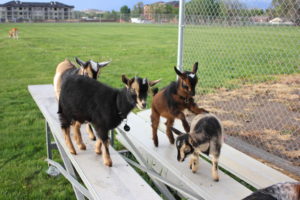
When you raise a baby from a bottle, you obviously become the mother figure for that baby, and therefore they become more attached to you vs another goat. There’s those that warn that when you allow them to get really attached to you then they can become really noisy for attention. I find that this can be true, but mainly if the goat was already born to be obnoxious. Out of 4 bottle babies, we just had 1 that became very loud for no apparent reason. I’ve also bought goats that are older, and they can be just as loud.
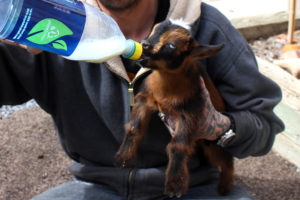
Time Investment
There’s a lot more of your time that needs to be set aside to feed a bottle baby every 2-4 hours depending on how old they are. A baby that is already weaned doesn’t require much more care than an adult. If your not going to be around, your neighbors are more than likely not going to want to invest that much of their own time into bottle feeding, so make sure you’ve got the time to set aside.
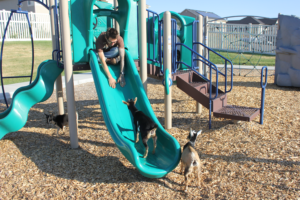 Behavioral Differences
Behavioral Differences
An older goat is going to prefer the company of other goats over you, and is likely to be more skittish. When you raise bottle babies, they crave being around you and love to climb and jump on you. They also can be friendlier with strangers, though I did have one goat who was more of a momma’s girl, and wasn’t sure what to think of new people.
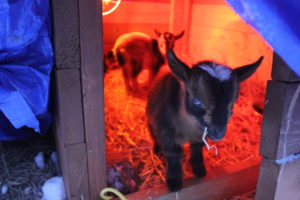
Cost
I wouldn’t say there is a huge cost difference if your just raising a few bottle babies, but you do have to buy nipples, and either milk replacement, or whole milk from the store. I don’t trust the ingredients in milk replacer so we just did whole cows milk. Ideally, if you already have other goats in milk, or freezer stored milk, you could use that which his much more suitable. With all of our bottle babies, I made sure that they were on their original mom’s milk for at least a couple of weeks before picking them up. This insured that they’d get the colostrum for proper antibodies and nutrients. Another possible cost is if it’s really cold outside then your babies will appreciate a heat lamp to keep them warm.
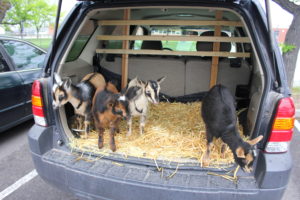 As Adults
As Adults
As adults, the goats we raised as bottle babies are much less skittish overall, and are more confident with people that come to visit. The goats we raised that were older just care about being with other goats, and just look to us for food and water. Now this isn’t going to be the case with every goat, this is just what I’ve seen in general when they are not socialized with people at a young age. We’ve had one girl that we got after she was weaned, and though she was skittish at first, she’s now one of our most confident friendly girls. A bigger part of the picture is how much time you invest in spending with them and building a bond. As time went on and we bought goats that were older, we were busier and not as adventurous with them which steered them to just wanting to hang with other goats.
I did find that it was good bonding so closely with our first batch of goats because they taught the new additions to follow us on our walks so everybody can enjoy some free-range grazing. 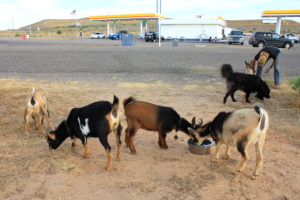

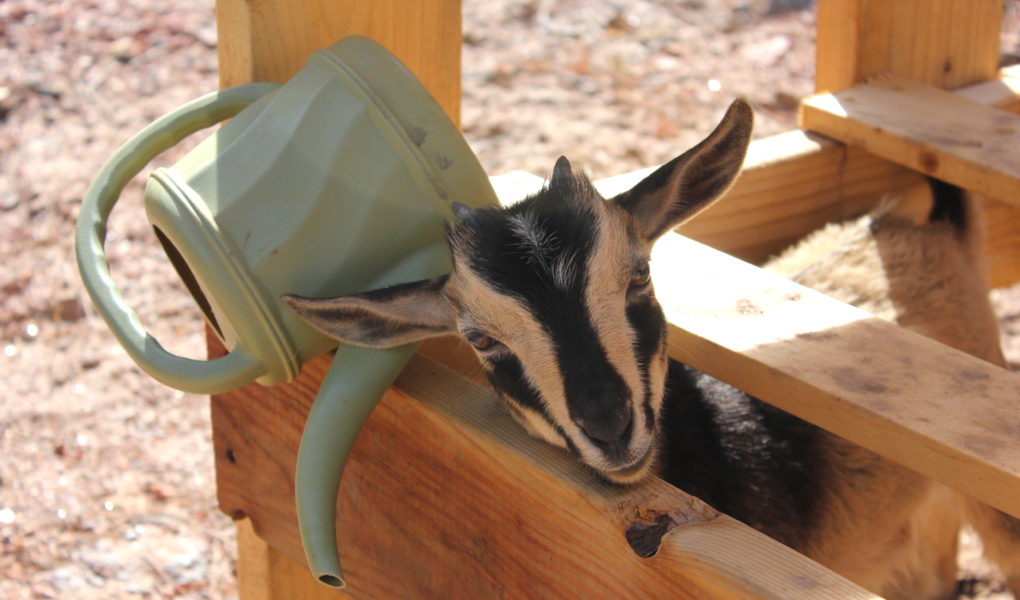
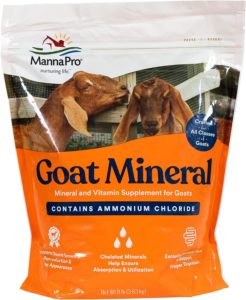







Hi, I am relatively new to goats. I got 2 La Mancha does and 1 Nubian buck as a Christmas gift. The does were bred and both were 4 yrs. old and not first time kidders. I sold the bucklings and kept the one doeling. After she was weaned and reintroduced at about 6 months old I bought another young doeling that also was about 6 months old. After about 3 weeks one of the does killed her. She pinned her against a wall and butted her to (near)death before I could get in and stop it. Is this common?
Wow, I haven’t heard of that happening. Goats will definitely show each other who’s boss, especially when new members are added to the herd. But generally they figure out the pecking order in the first few days to a week with little more than chasing the new comers away and such. Very unusual that after 3 weeks the doe would suddenly decide to kill. I would suspect (or hope) she accidentally killed her by taking it too far. If it was me and it was a reoccurring problem, I’d consider selling the aggressive doe as that’s not a trait I’d want to continue to breed. If it was a freak accident, I’d separate the bossy doe from any newcomers until I could properly supervise and know that they are okay with each other. It also helps providing enough space or hiding places for shy goats to get away from the bullies. So sorry to hear that happened, hopefully it doesn’t happen again.
Good day! Do you use Twitter? I’d like to follow youif that would be ok. I’m undoubtedly enjoying your blog and look forward to new updates.
Hello, I’m glad you’re enjoying the blog. No, I do not use Twitter. My personal preference is to avoid the majority of social media.